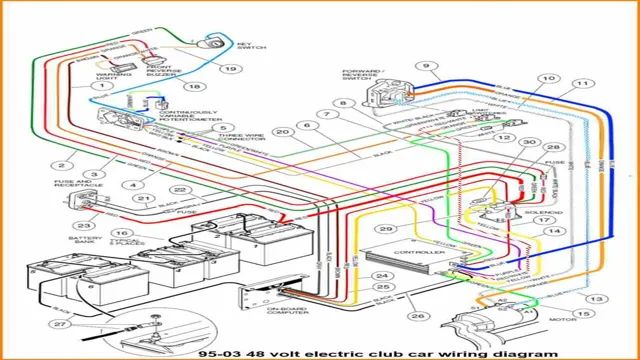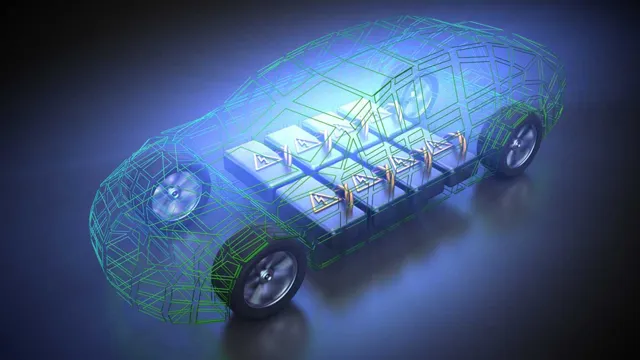The Shocking Truth About the Cost to Charge an Electric Car Battery
Have you ever wondered how much it costs to charge an electric car battery? With the growing popularity of electric vehicles, many people are curious about the financial aspect of owning one. While it may seem daunting at first, the cost to charge an electric car battery is surprisingly affordable. In fact, it can be up to 80% cheaper than filling up a gas tank! The cost to charge an electric car battery varies depending on several factors, such as the size of the battery, the state of the battery charge, and the local electricity rates.
Generally, it can range from a few cents per kilowatt-hour to a few dollars. To put it into perspective, let’s say you have a 60-kilowatt-hour battery and your electricity provider charges $0.10 per kilowatt-hour.
Charging your car battery from empty to full would cost you around $ One of the main advantages of electric cars is their cost-efficiency. Not only are they cheaper to operate, but they also require less maintenance than traditional gas vehicles.
With fewer moving parts and no oil changes required, the cost savings can add up over time. Additionally, many states offer incentives and tax credits for purchasing electric vehicles, further reducing the overall cost. In conclusion, the cost to charge an electric car battery is significantly lower than the cost of filling up a gas tank.
While it may depend on various factors, electric vehicles are generally more cost-efficient in the long run and require less maintenance. As electric cars become more prevalent, it’s important to understand the financial aspect of owning one and the potential cost savings.
Factors Affecting the Cost
When it comes to charging an electric car battery, there are several factors that can affect the cost. One of the biggest factors is the type of charger used. Level 1 chargers, which use a standard household outlet, tend to be much cheaper than Level 2 or DC fast chargers.
The length of time it takes to charge your battery can also impact the cost. The longer it takes to fully charge your battery, the more you can expect to pay. Location can also play a role, as charging costs can vary depending on local electricity rates.
Finally, the size of your car’s battery can also affect the cost, as larger batteries require more electricity to charge. Overall, understanding these factors can help you better estimate the cost to charge your electric car battery and make informed decisions about when and where to charge.
Electricity Rates
Electricity rates can vary widely depending on several factors that influence the cost. The primary factor that affects the electric bill is the consumption level. The more electricity you consume, the higher your rates will be.
The time of day in which you use electricity also plays a significant role in determining your charges because peak hours result in higher rates. Your geographic location can contribute to higher rates due to the demand on the power grid and the cost of maintenance and distribution. Power plants that generate power from renewable sources of energy, such as wind or solar, have higher setup and operating costs, which in turn cause higher utility bills.
Finally, any regulatory fees or taxes imposed by the state or government can also increase the overall cost of energy. Understanding these factors can help you save money on your electricity bills and make informed decisions about your utility consumption. With knowledge of pricing factors, you can choose a plan that provides more favorable rates for your usage, consider a home energy audit to lower consumption, or implement changes to your usage behavior to save money every month.
Battery Size
Battery size is a crucial factor that affects the cost of a battery. The larger the size, the higher the cost. This is because larger batteries have more cells and require more materials, which in turn increase the manufacturing cost.
Moreover, larger batteries tend to have higher energy density, which means that they can store more energy in a smaller space. This necessitates the use of advanced materials and technologies, which further add to the cost. Additionally, the charging system of a larger battery needs to be more robust, which means additional costs for designing and manufacturing it.
However, larger batteries also provide better performance and longer life, which may justify the increased cost in certain applications such as electric vehicles and renewable energy storage systems. Therefore, when considering the cost of a battery, it is essential to take into account the balance between size, performance, and cost-effectiveness.
Calculating the Cost
When it comes to owning an electric car, one important factor to consider is the cost to charge the battery. The cost can vary depending on factors such as the location, time of day, and type of charging station. In general, the cost to fully charge an electric car battery can range from around $5 to $20, depending on the size of the battery.
This may sound expensive, but it’s important to remember that electric vehicles have lower maintenance costs and save money on fuel in the long run. Additionally, there are ways to save on charging costs, such as charging at home during off-peak hours or using free public charging stations. Overall, while the cost to charge an electric car may be initially higher than a traditional gas-powered vehicle, the long-term benefits and cost savings make it worth considering.
Example Calculation
When it comes to calculating the cost of a product, there are a few factors that need to be taken into consideration. First and foremost is the cost of materials. Depending on the product, this could include things like wood, steel, plastic, and other raw materials needed for manufacturing.
After the cost of materials is determined, the cost of labor must also be factored in. This includes the wages of any employees involved in the production process, as well as any associated benefits and overhead costs. Additional costs such as transportation, marketing, and packaging must also be considered.
Once all of these costs are added up, a markup can be applied to determine the final price of the product. Keep in mind that the markup should take into consideration the market demand for the product and competitors’ pricing. By carefully considering all of these factors, businesses can confidently set a price that covers their costs while still remaining competitive in the market.
Saving Money on Charging
If you’re considering purchasing an electric car, one factor to consider is the cost to charge an electric car battery. Charging at home can be cheaper than using public charging stations, so it’s worth exploring this option. One smart way to save money on charging is by taking advantage of time-of-use (TOU) plans with a utility company.
These plans typically offer lower rates during off-peak hours, which are typically during the night when demand for electricity is lower. You can also explore installing solar panels on your home to generate your own electricity and save on charging costs. It’s important to research and compare rates from different providers to find the best deal for you and your electric car.
By utilizing these strategies, you can save money on charging and make your electric car even more cost-effective in the long run.
Time-of-Use Rates
If you own an electric vehicle, you know that charging it can be expensive. However, there’s a way to save some money on charging, and it’s by taking advantage of time-of-use rates. These rates vary depending on the time of day, with lower rates being offered during off-peak hours.
By charging your EV during these hours, you can save a significant amount of money on your electricity bill. Of course, this requires some planning and a bit of flexibility, but if you’re willing to adjust your charging habits, it can be well worth it. Some utilities even offer special programs for EV owners that provide discounted rates specifically for charging your vehicle.
So, if you’re an EV owner, look into time-of-use rates and see how much money you could be saving.
Home Solar Panels
If you’re an electric car owner, you know how expensive it can be to have to charge your car regularly. But what if there was a way to save money on charging? That’s where home solar panels come in. By installing solar panels on your home, you can generate your own electricity and power up your electric car without having to rely on your local power grid.
Not only does this help you save money on charging costs, but it also helps you reduce your carbon footprint. Plus, with the availability of various government incentives and rebates, the initial cost of installing solar panels can be reduced significantly. So, if you’re looking for a way to save money and help the environment at the same time, consider installing home solar panels.
Conclusion
So, there you have it, folks! The cost to charge an electric car battery ultimately depends on a variety of factors: the battery’s capacity, the charging rate, the time of day, the cost of electricity in your area, and your own driving habits. While it may seem overwhelming at first, with a little research and careful planning, you can save money and reduce your carbon footprint. Just think – with an electric car, you’ll never have to worry about gas prices or emissions again! Just be sure to also invest in a good sense of humor, because as we all know, puns about charging an electric car are always.
..shocking.
“
FAQs
What is the average cost to fully charge an electric car battery?
The cost to fully charge an electric car battery depends on the car model, battery size, and the electricity rate in different areas. However, on average, it can cost around $10 to $20 to fully charge an electric car battery.
How long does it take to charge an electric car battery?
The charging time for an electric car battery varies based on the battery capacity, charger type, and charging speed. As a general rule, it takes approximately 4-8 hours to fully charge an electric car battery with a Level 2 charging station.
Can I charge an electric car battery at home?
Yes, you can charge an electric car battery at home using a Level 1 or Level 2 charger. Level 1 chargers can be plugged into a standard household outlet and take about 12 hours to charge an average electric car battery. Level 2 chargers require a special charging station and take about 4-8 hours to charge an electric car battery depending on the battery size.
What factors affect the cost to charge an electric car battery?
The cost to charge an electric car battery is influenced by various factors, including the battery size, charging rate, and the local electricity rate. In addition, temperature, charging time, and battery age can also affect the cost and efficiency of charging an electric car battery.






